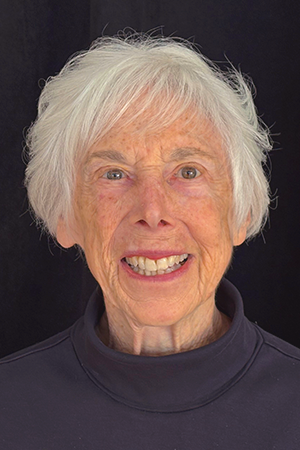The Next Dramatist

George Street Playhouse gratefully recognizes Johnson & Johnson as the Lead Philanthropic Supporter of The Next Dramatist.
COMING UP
The Disappearing Goobies - A New Works Reading
by Dorothy Politziner
"The Disappearing Goobies" is an enchanting original children's musical that blends whimsical fantasy with poignant social commentary. The story follows a magical batch of gingerbread cookies—affectionately known as "Goobies"—who unexpectedly come to life. The narrative reaches its climax when the heroic Little Gooby must save the group from being eaten by an unhappy young boy, ultimately teaching him about empathy and friendship.
When: Sat. June 13th, 2026 @ 1:00pm
Admission: Free (must reserve seat in advance). Light refreshments will be provided.
Where:
George Street Playhouse
9 Livingston Ave, New Brusnwick, NJ
3rd Floor
About the Playwright

Dorothy Politziner has been a storyteller since her childhood days staging backyard plays for the neighborhood. While her professional career led her to excel as an elementary school teacher and a clinical social worker, her passion for writing remained a constant thread.
Her notable work for young audiences includes the musical The Disappearing Goobies (with music and lyrics by David Strauss), which premiered at the University of Michigan and was later produced by Seattle's Debut Youth Theater in 1992. The success of the grant-funded production led Dorothy to pen two sequels, The Goobies Take a Licking and Company’s Coming to Goobyland, both staged in the following years.
Dorothy holds degrees from Douglass College, Yeshiva University, and Rutgers University. After a fulfilling career in education and private therapy practice, she is now focusing her energy on her first love: the stage. Recently selected as The Next Dramatist, Dorothy is thrilled to dedicate her time to reimagine and rework her beloved children's musical. She lives with her husband and is a proud mother, grandmother, and lifelong cat enthusiast.
ABOUT THE NEXT DRAMATIST
-
The Next Dramatist is a development program for first-time writers and emerging playwrights based in New Jersey.
-
This tailored program consists of workshops on structure, character, and story, through one-on-one mentoring sessions.
- Each writer will be paired with a director, and joined by community actors to read their scripts and rewrites throughout the process.
Submission Information
SUBMISSION INFORMATION
- The Next Dramatist is a development program for first-time writers and emerging playwrights based in New Jersey. This eight-week program consists of workshops on structure, character, and story to strengthen the piece. Each writer will work closely with a director, who will have regular meetings and receive notes for the play's presentation. Actors will also join them in reading their scripts and rewrites throughout the process. The program culminates in a final reading in front of an audience to present the play for feedback and to garner industry interest.
Requirements for Submissions:
- The program is seeking emerging playwrights.
- The play must have under four characters.
- The playwright must demonstrate a commitment to growth and development and a willingness to engage in workshops, revisions, and collaborations with mentors to enhance the play.
SUBMISSIONS HAVE CLOSED. Check back for more information later!
2025 Archives
Road to Unforgettable
by Nicole Powell
Directed by Michelle Dorant
Road To Unforgettable is a documentary-style biographical play about the life of Natalie Cole. It tells the turbulent journey of a young girl growing up in the shadow of her famous father, the legendary Nat King Cole, to becoming one of the music industry’s most accomplished and beloved artists in her own right. Natalie gives a special concert performance and serves as narrator, looking back on her life. While sharing memories, characters are brought to life, and dark secrets are revealed. The challenges and triumphs of Natalie Cole’s personal and professional life are portrayed from childhood to the release of her 6-time Grammy-winning album Unforgettable With Love. It’s an inspirational story about family honor, loss, and resilience.
________________________________________________________________________
TV Dinners
By Billy Leys
Set in the late winter of Galloway Township, NJ, Travis and his stepson Bosie check into a one-stop motel while they decide their next move. The two are faced with the possible consequences of an impulsive decision based on attraction. With the lore of the area's mascot, The Jersey Devil, luring over them one simple act will change the course of their direction permanently.
________________________________________________________________________
The Obituary
By Benjamin D. Smith
Directed by Charlie Hudson III
The Obituary unfolds the story of Theodore Thadius Gohagen IV, affectionately known as Thad, whose life has been meticulously crafted by his father, Theodore III. Thad has inherited the family business, Gohagen Funeral Home, and has lived according to his father's design. However, following his father's death, Thad decides to embrace his own aspirations, including pursuing new career opportunities, relocating, and seeking true love. After thirty-four years of living a life predetermined by his father, Thad also chooses to part ways with his wife, Lindsey, whom his father had selected for him.
As Thad grapples with his newfound independence, he faces silent pressure from his best friend, who has harbored intentions for Thad to return to the life planned for him during their college years. The tension escalates when Thad is visited by his father’s spirit at the funeral home, further complicating his journey. The drama intensifies as Thad’s mother reveals hidden truths about her marriage to his father.“The Obituary” ultimately unveils that every family harbors secrets, and this family is no exception.
2024 Archives
Hill Street Auto
A New Play By Charlie Hudson III
Directed by Michelle Dorant
Presentation on April 8, 2024
About The Show:
Hill Street Auto reveals a thoughtful account of life in Montgomery, AL in the 1950’s, as Black Americans strive for progress amid escalating Jim Crow hostilities. The story is nestled in the experience of two Tuskegee Airmen vets, Lee ‘Sarge’ Andrews and James ‘Hamp’ Hampton, who have managed to transition to civilian life by opening an auto shop, supporting the community around them, and mentoring the burgeoning youth in the NAACP. As tensions grow, our characters must wrestle with the perpetuation of hate, forgiveness, and reconciling what is and what might be. Hudson's story illuminates the courage and compassion of “unsung heroes of the Gump”, whose impact has changed the world.
Closet Writer
A New Play By Antu Yacob
May 20th at 7pm
About The Show:
Closet Writer is a nod to the past, living in the present, awaiting the freedom tomorrow brings. B. GEM is a Black woman living in the United States of America. She is a daughter, sister, wife, mother and writer. In this two woman play, we meet the life moments she failed and those she overcame. We meet the interesting people that shaped her, for good and bad. Ultimately, we meet the her that forces her to see herself. Blessed, broken, messy, thriving and All.
Body of Christie
A Play By Karen Alvarado
Presentation on July 8, 2024
About The Play:
Christie Barboza is a shy and young Latina from Corpus Christi, Texas. Despite crippling stage fright, she joins the Quetzal Theatre Company, a humble Hispanic historical touring group.
Quetzal quickly creates a foundation of confidence and friendship in her otherwise fragile life. In Christie's hyperactive imagination, she blames her family’s misfortunes on the melodramatic figure of Tragedia. But this imaginary crutch prevents her from acknowledging reality as a series of choices rather than fate. Christie counters Tragedia’s havoc by fusing the magic of theatre with her Tejano heritage as a subconscious means for processing the secrets and hardships of her dysfunctional Latino family led by Rick, Christie's ambitious father. On this journey Christie finds the courage to act in public by embracing a riveting oration from Las Soldaderas of the Mexican Revolution, she navigates a broken female friendship through La Malinche's betrayal of the Aztec Empire, weeps for the loss of loved ones as the wounded Los Tejanos on the frontier, endures ethnic prejudice alongside The Greasers of the 1950s and expresses unbridled rage for her father during La Llorona's murderous rampage. With mounting tension, Christie watches Rick ruin her family's finances, destroy her mother's life, lose a public office, and dismantle her sacred and beloved theatre company. Christie fights back in her imagination with the aid of Luchador-esque versions of her hometown's Catholic icons. The Virgin Mary appears to hold back her hair after an irresponsible night of vodka, the Saints punish a villain by placing him in a karate chokehold, and the Angels swoop in to defend her mother's honor by sparring in a nasty text message fight with Rick's mistress. In this sprawling tale along the Texas-Mexico border, Christie Barboza transitions from victim to survivor, child to woman, and daughter to mother. By confronting her father, accepting reality over fantasy, and owning her own hand in life's tragedies, Christie Barboza struggles to write her own narrative as a strong latina artist.
This coming-of-age narrative immerses audiences in cultural heritage, ethnic tensions and socio-economic hardship linked to Latinos upward mobility. Body of Christie (working title) utilizes Latino history and Texas-soaked magical realism that blends truth, trauma, and nostalgia.
Leo and the Misfits
By William Strauss
Presentation on August 6, 2024
About The Musical:
Based on the children’s book of the same name, Leo and the Misfits is a heartwarming story about one boy's adventure with a group of musical cats. They band together to defy the Mayor's order for peace and quiet in the town. In spite of the surprise appearance of the Mayor and his noise patrol, they save the day in a musical way.
 Give
Give